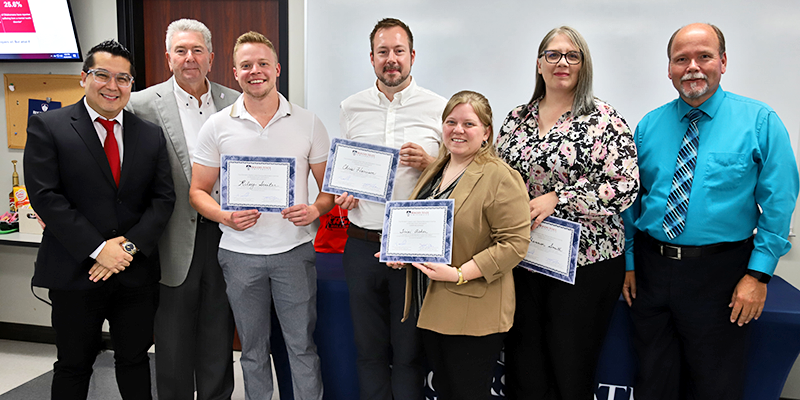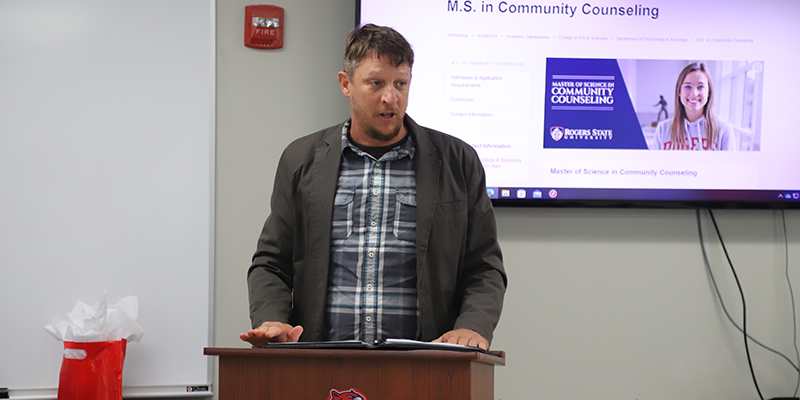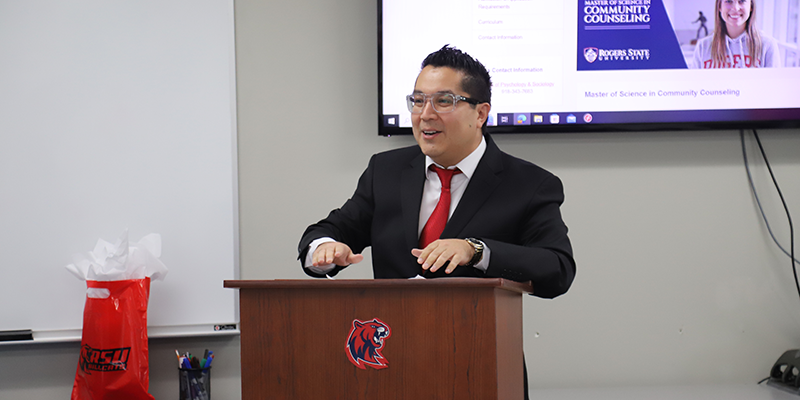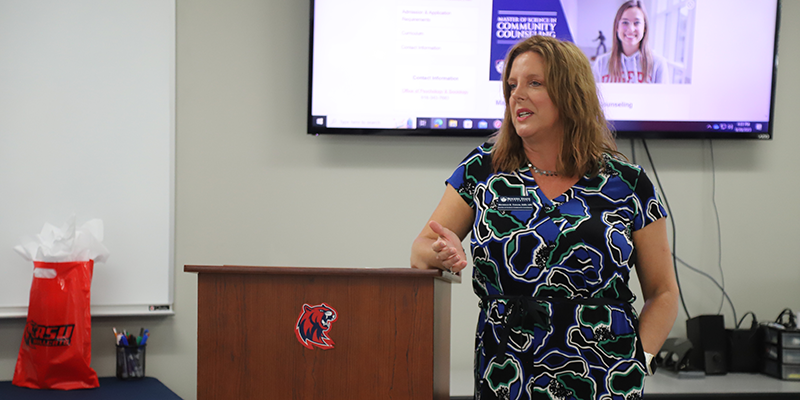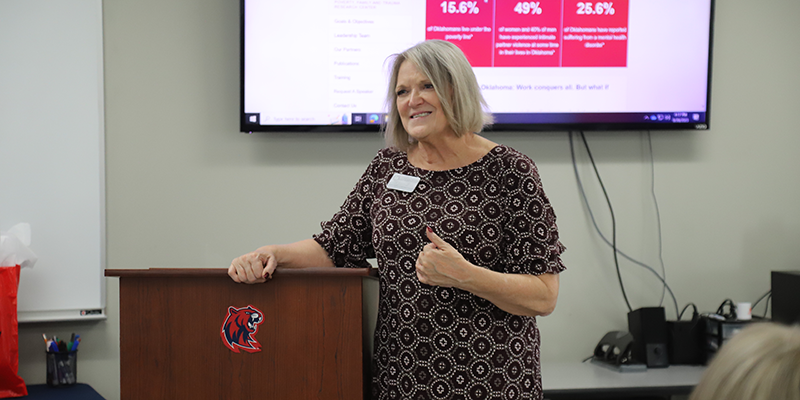The vision of combatting poverty and trauma through scientific research moved closer to reality last week with the opening of the Poverty, Family and Trauma Research Center at RSU.
Although the research organization was formed last year, it wasn’t until recently that a designated space was secured and dedicated for use, with university leaders, partners, students and staff in attendance at the dedication ceremony Sept. 28.
Addressing a packed room of university leaders, partners, supporters and students, several faculty members and center advocates addressed the impact of the research center’s opening.
“I’m very excited about this research center,” began Dr. Brian Andrews, Psychology and Sociology department head and associate professor. “I’d like to thank Felipe Oyarzo and his students for all the work they put into getting this off the ground, as it will be a great resource for our faculty, our students and the community we serve. I’ve always been an advocate of integrating research into the classroom. Students learn better when they’re actively conducting and participating in research, which has always been a focus of our department.
“This research center will allow us to continue to strengthen that focus on research,” he said. “As a smaller regional university, we’re uniquely embedded in our community in ways that larger schools aren’t, and I feel this center will allow us to build long-term relationships with community organizations, which is great news for the community and for RSU as well.”
Founded by researcher and RSU adjunct instructor Felipe Oyarzo, the center came to fruition through the research of numerous student volunteer researchers, determined to uncover the needs of Oklahoma children and identify the ways to best assist them with trauma.
“The main purpose of the center is to produce scientific knowledge – knowledge that can help leaders and organizations identify the social, mental and economic needs of our communities,” Oyarzo said. “Our goal is to continue partnering with local, state and federal organizations and to be able to contribute to empirical and high-quality scientific knowledge and suggestions that can contribute to the reduction of poverty rates, the strengthening of the family and recovery after trauma.
“In a world that’s becoming increasingly ideological – which I say with respect – we want to provide solutions based on the power of science, not perceptions,” he continued. “I strongly believe that Oklahoma should value science when improving its systems and I do want to say that, for as long as I have the privilege to lead the research center, I will make sure our research remains scientific and that we pursue the well-being of our communities and their citizens.”
Oyarzo then cited a sampling of statistics uncovered by the center’s research, such as nearly 16 percent of Oklahomans live below the poverty line, 49 percent of women (and 40 percent of men) in Oklahoma experience intimate partner violence at some time in their lives, and 25.6 percent of Oklahomans have reported suffering from a mental health disorder.
Oyarzo also noted the correlation between mass shootings in America and family dysfunction and/or the absence of a father figure in the life of the shooter.
After brief comments from other guest speakers – including Dr. Michelle Taylor, director of the Master of Science in community counseling program, and Dr. Kathy Hoppe, assistant professor of psychology and sociology, both of whom are collaborating with Oyarzo on a soon-to-be-published textbook about trauma and emerging professionals – Oyarzo recognized several of his student researchers whom he said were instrumental in gathering data for the center.
“It’s my hope that this center will be a lighthouse for all who seek knowledge, who seek value in scientific research and utilize that to help others recover from poverty and trauma, even after I’m long gone,” he said.
Following the ceremony, guests dispersed to tour the center and learn more about the work of the center.
The Poverty, Family and Trauma Research Center, located in Room 201 of Baird Hall, seeks to produce high-quality research on family problems related to poverty and trauma; to identify strategies for addressing these problems, first in Oklahoma, then in other regions of the country as well as the world; and to influence policy making, international research, counseling, and education.
The Poverty, Family and Trauma Research Center works closely with the member countries of the Organization for Economic Cooperation and Development (OECD) and uses data provided by this entity for many of its studies.
For more information about the center and its work, visit www.rsu.edu/ResearchCenter.

